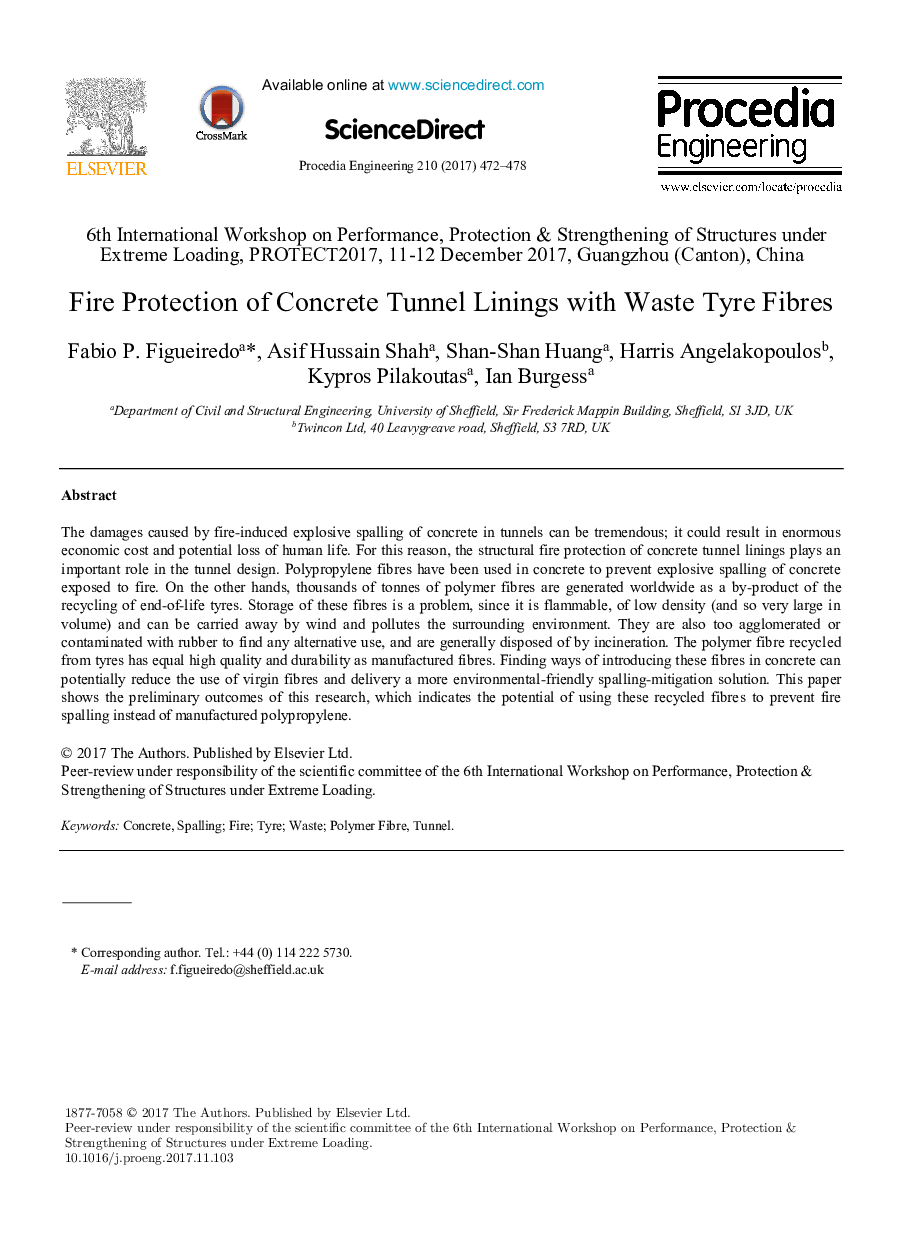| Article ID | Journal | Published Year | Pages | File Type |
|---|---|---|---|---|
| 7226849 | Procedia Engineering | 2017 | 7 Pages |
Abstract
The damages caused by fire-induced explosive spalling of concrete in tunnels can be tremendous; it could result in enormous economic cost and potential loss of human life. For this reason, the structural fire protection of concrete tunnel linings plays an important role in the tunnel design. Polypropylene fibres have been used in concrete to prevent explosive spalling of concrete exposed to fire. On the other hands, thousands of tonnes of polymer fibres are generated worldwide as a by-product of the recycling of end-of-life tyres. Storage of these fibres is a problem, since it is flammable, of low density (and so very large in volume) and can be carried away by wind and pollutes the surrounding environment. They are also too agglomerated or contaminated with rubber to find any alternative use, and are generally disposed of by incineration. The polymer fibre recycled from tyres has equal high quality and durability as manufactured fibres. Finding ways of introducing these fibres in concrete can potentially reduce the use of virgin fibres and delivery a more environmental-friendly spalling-mitigation solution. This paper shows the preliminary outcomes of this research, which indicates the potential of using these recycled fibres to prevent fire spalling instead of manufactured polypropylene.
Related Topics
Physical Sciences and Engineering
Engineering
Engineering (General)
Authors
Fabio P. Figueiredo, Asif Hussain Shah, Shan-Shan Huang, Harris Angelakopoulos, Kypros Pilakoutas, Ian Burgess,
